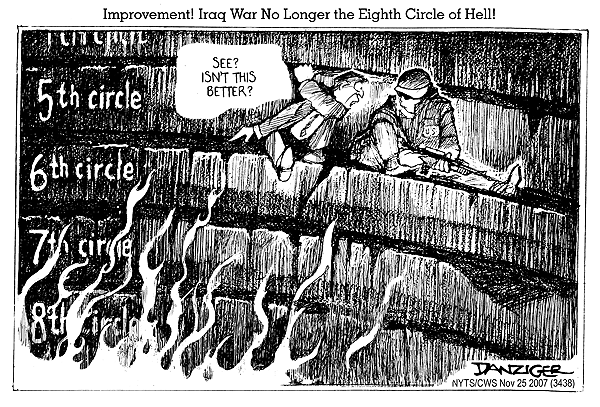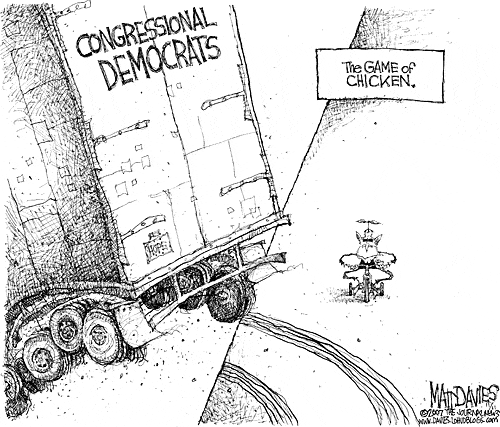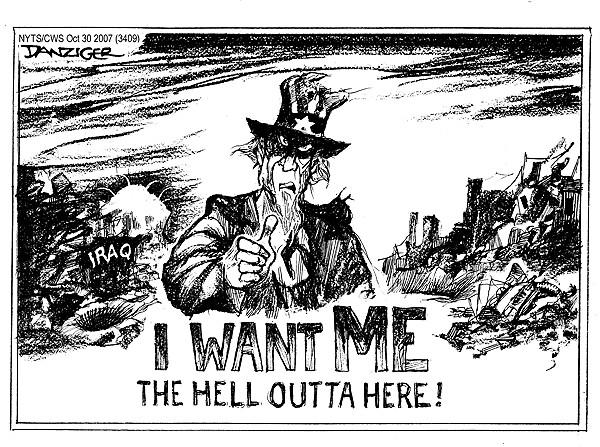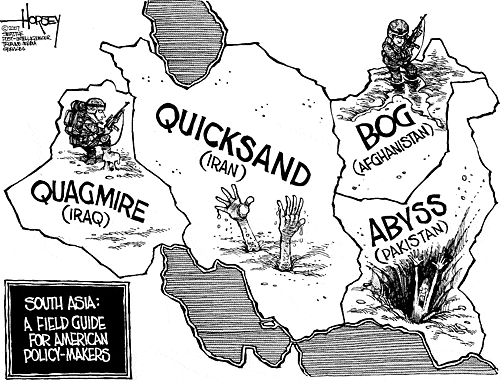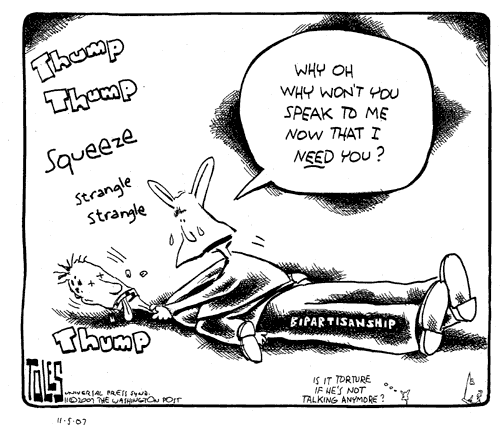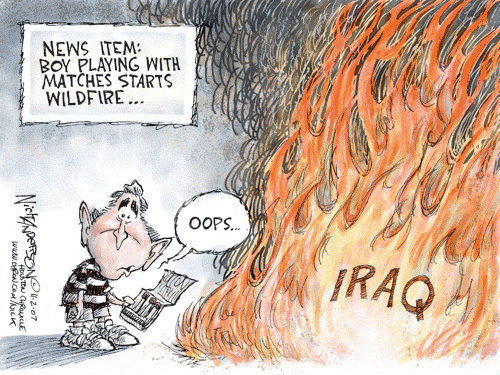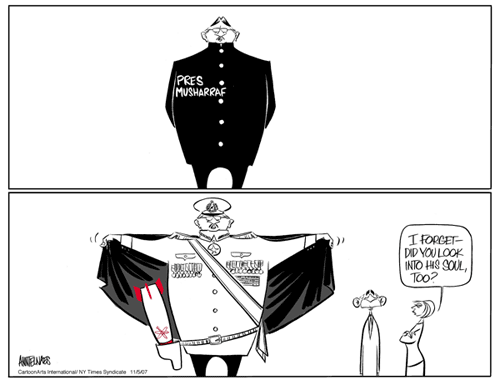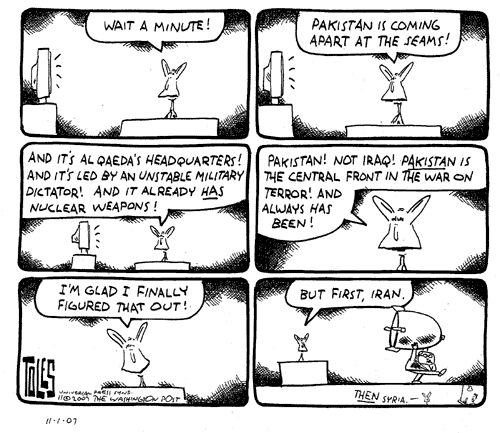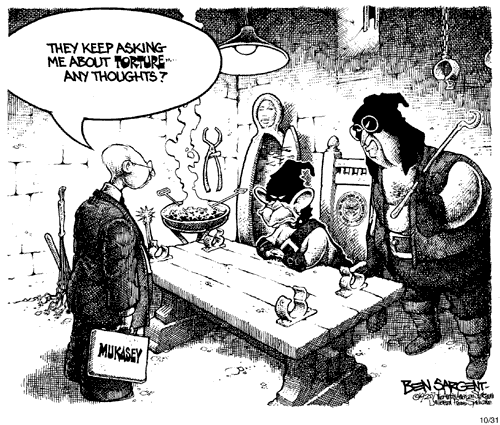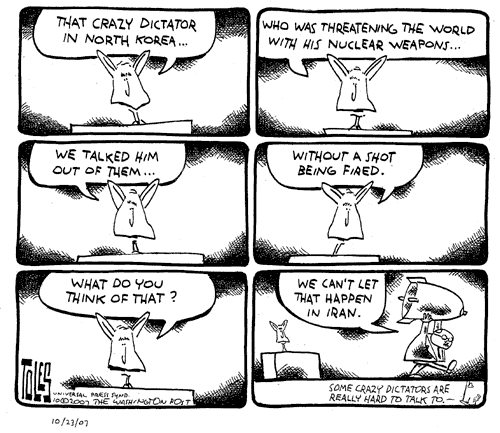The American military said Sunday that the weekly number of attacks in Iraq had fallen to the lowest level since just before the February 2006 bombing of the Shiite shrine in Samarra, an event commonly used as a benchmark for the country's worst spasm of bloodletting after the American invasion nearly five years ago.
Data released at a news conference in Baghdad showed that attacks had declined to the lowest level since January 2006. It is the third week in a row that attacks have been at this reduced level.
The statistics on attack trends have long been a standard measure that the American military has used to assess violence in Iraq. Because the data have been gathered for years and are deemed generally reliable they allow analysts to identify trends.
Military officials said the attacks were directed against American and Iraqi forces, as well as civilians. But since the source for the data is American military reports, and not the Iraqi government, the figures do not provide an exhaustive measure of sectarian violence.
Nonetheless, the figures added to a body of evidence, compiled by American and Iraqi officials, indicating that the violence had diminished significantly since the United States reinforced troop levels in Iraq and adopted a new counterinsurgency strategy.
The data released Sunday cover attacks using car bombs, roadside bombs, mines, mortars, rockets, surface-to-air missiles and small arms. According to the statistics, roughly 575 attacks occurred last week.
That is substantially fewer than the more than 700 attacks that were recorded the week that Sunni militants set off a wave of sectarian violence in Iraq by blowing up a Shiite shrine in Samarra in February 2006. And it represents a huge drop since June when attacks soared to nearly 1,600 one week.
American officials said other measures indicated that civilian deaths had dropped. Rear Adm. Gregory Smith, a spokesman for the command, said civilian deaths had dropped by 60 percent since June.
Military analysts said a number of factors explained the drop. They say, for example, that Al Qaeda in Mesopotamia, a predominantly Iraqi insurgent group with foreign leadership, has been greatly weakened by American military attacks.
Thousands of new Sunni volunteers have made common cause with the Americans. About 72,000 such civilians have joined the effort, American officials said, and 45,000 each receive a $300 a month stipend from the Americans to help with the effort.
Moktada al-Sadr, the anti-American cleric, has ordered his militiamen to stand down. American military officials also say that Iran appears to be abiding by a commitment to reduce the flow of roadside bombs and other weapons into Iraq. Beyond that, many Iraqis appear to be exhausted by the sectarian violence and eager for a modicum of stability.
To be sure, the level of violence in Iraq is still high. Even as military officials announced the figures, Iraq had one of its deadliest days in weeks, with at least 22 people killed. Among the killed were nine civilians in Karada, a mixed neighborhood in central Baghdad, when a car bomber rammed a convoy carrying Iraq's deputy finance minister. The official was not hurt, but a guard was among the wounded.
Also on Sunday, three children were killed and seven were wounded in Baquba, to the north, in an explosion in a small garden where American soldiers were handing out candy, ballpoint pens and soccer balls. Three American soldiers were also killed. Their names were not released.
Some experts said the data indicated a downward trend in violent attacks, albeit from relatively high levels -- 2006 was one of the most violent years in the war.
The most pressing issue, they said, was how to keep them down and reduce violence further given the failure of Iraqi leaders to achieve reconciliation.
''These trends are stunning in military terms and beyond the predictions of most proponents of the surge last winter,'' said Michael O'Hanlon, a military analyst at the Brookings Institution, referring to President Bush's troop reinforcement plan. ''Nobody knows if the trends are durable in the absence of national reconciliation and in the face of major U.S. troop drawdowns in 2008.''
Military officials stressed that attack levels might fluctuate in the future and that it was too soon to say that the United States had turned the corner in Iraq. Past periods of relative calm in Iraq have also been shattered by violence. And American officials have complained that the Iraqi government is not taking the opportunity in the current lull to attempt serious political progress.
''While violence is turning in the right direction, a tough fight remains ahead and progress will be uneven,'' Admiral Smith said. ''Violence is still too high in many areas of Baghdad and across Iraq.''
Still, he rattled off statistics that pointed to progress in lowering violence. Casualties suffered by Iraqi security forces, he said, were down 40 percent since the beginning of the troop reinforcement plan. Civilian fatalities in Baghdad, he said, were down 75 percent in recent months. In some areas, the attacks have not been so low since the spring and summer of 2005.
Since the violence has decreased in Baghdad people have begun trickling back into cafes and streets in the hope that the calm will last.
Two weeks ago, Prime Minister Nuri Kamal al-Maliki said the dip in violence had allowed 7,000 families to return to Baghdad, though it was not clear how he arrived at that figure.
